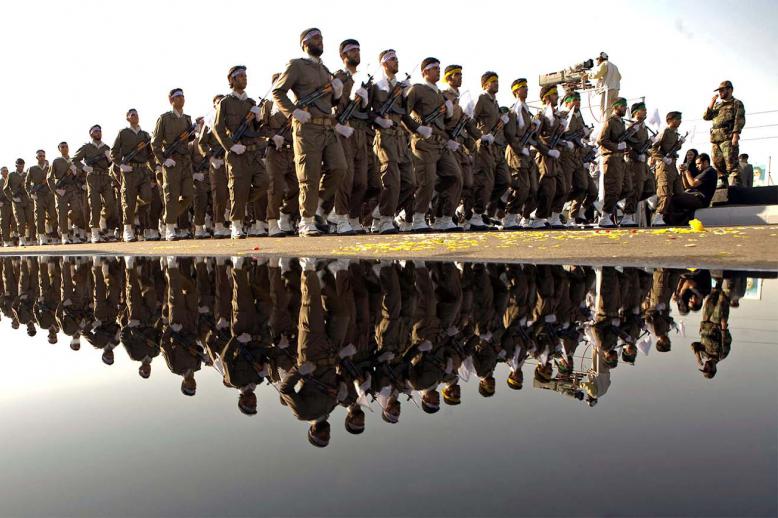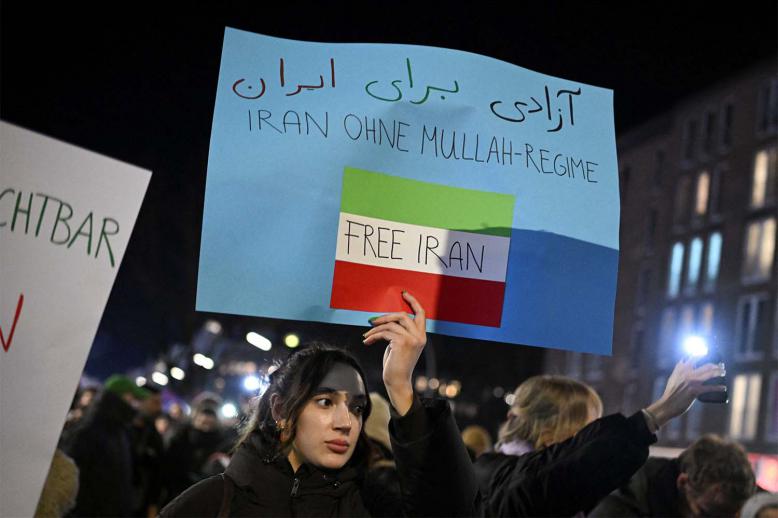Palestinians up the diplomatic ante against Israel, US
LONDON - Palestinian officials recently increased international diplomatic efforts against Israel and the United States as their ties with Washington and Tel Aviv continue to deteriorate.
The Palestinian Authority formally requested that the International Criminal Court (ICC) investigate a planned Israeli demolition of the Palestinian Bedouin village of Khan al-Ahmar in the occupied West Bank.
The move infuriated the United States, which has repeatedly warned the Palestinians against turning to the ICC.
“The United States supports a direct and robust peace process and we will not allow the ICC or any other organisation to constrain Israel’s right to self-defence,” US national security adviser John Bolton said in a speech to the Federalist Society, a Washington public policy group.
The Trump administration announced the closure of the Palestine Liberation Organisation office in Washington, which serves as the de facto Palestinian embassy in the United States. The US State Department said the closure was because the Palestinians have “not taken steps to advance the start of direct and meaningful negotiations with Israel.”
The US antagonism against the ICC is not linked only to Israel. Bolton also threatened to sanction officials at the Hague-based court should they investigate US troops who served in Afghanistan over war crimes allegations.
Bolton’s remarks led the French and German foreign ministries to express support for the ICC and drew condemnation from human rights groups.
“Any US action to scuttle ICC inquiries on Afghanistan and [the Palestinian territories] would demonstrate that the administration was more concerned with coddling serial rights abusers… than supporting impartial justice,” said Human Rights Watch.
Senior Palestinian official Saeb Erekat branded the US threats against the ICC as “a coup against the rules in the international system” and vowed to take Israel to task at other world bodies.
“We are determined to pursue this line, to pursue our fight in the [UN] Security Council, the [UN] General Assembly, the Human Rights Council and the International Court of Justice,” he said.
Erekat reiterated that the Trump administration was unashamedly biased in favour of Israel and therefore can no longer be an honest broker in the peace process.
“I think the only way [US officials] can meet us in any negotiating room is if Mr Binyamin Netanyahu, the prime minister of Israel, can announce them [Jared Kushner, Jason Greenblatt and David Friedman] as part of the Israeli team for negotiations,” he said.
The Palestinians also turned to the ICC in May, following Israel’s killing of more than 160 Palestinians at Gaza’s border with Israel. Despite the US dismissal of the role of the ICC and despite Tel Aviv’s support for Washington’s stance, Israel is wary of the involvement of the international court.
The Israeli military said on August 21 that it was opening a criminal investigation into the recent shooting of two Palestinians at the Gaza Strip border. Some Israeli analysts interpreted that as a message to the ICC.
“Their message to the ICC was clear — the Israeli legal establishment is independent and makes professional and impartial decisions regardless of virtually constant criticism from all sides,” wrote Yonah Jeremy Bob in the Jerusalem Post.
In an uncommon move, Israeli farmers filed a war crimes complaint with the ICC against Hamas for sending fire kites across the Gaza border.
Prior to turning to the ICC in September, Palestinian officials urged European states to pressure Israel against demolishing the Khan al-Ahmar village. Britain, Germany, France, Spain and Italy called on Israel to cancel its demolition plans. “The consequences a demolition and displacement would have on the residents of this community, including their children, as well as on the prospects of the two-state solution, would be very serious,” the five European countries said in a joint statement.
Israel has yet to carry out the demolition, which has been cleared by the country’s supreme court.
US moves to pressure the Palestinians into accepting negotiating terms more favourable to Israel appear to have failed. The US decision to move its embassy from Tel Aviv to Jerusalem drew international rejection, including from Washington’s allies in the region.
The US announcement to cut aid to Palestinians, including funds to the UN Relief and Works Agency for Palestine Refugees in the Near East (UNRWA), led other countries to step in to bridge the gap.
“Some Palestinians see the American actions as a window of opportunity for a strategic change vis-a-vis the United States and Israel, letting the Palestinians free themselves from the economic and security reliance dictated by Washington after the Oslo Accords,” wrote Jack Khoury in Haaretz.
Palestinian officials had been engaging in quiet diplomacy with the newly elected government of Paraguay before the South American country decided to move its embassy in Israel from Jerusalem back to Tel Aviv.
Despite the risks of a public backlash at home, Palestinian Foreign Minister Riyad al-Maliki attended the inauguration of Paraguayan President Mario Abdo Benitez on August 14 in Asuncion.
Israel reacted angrily to Benitez’s decision, shutting its embassy in Paraguay and recalling the Israeli ambassador from there. Israel cancelled a planned official visit by Israeli economists to Paraguay. In contrast, the Palestinians planned to open an embassy in Paraguay.
Israel has sought to sideline Palestinian President Mahmoud Abbas by striking a long-term ceasefire deal with Hamas, Abbas’s rivals in Gaza, but an agreement has remained elusive. Abbas objected to a deal that bypasses his authority.
Mamoon Alabbasi is Deputy Managing Editor and Online Editor of The Arab Weekly. You can follow him on Twitter @MamoonAlabbasi
This article was originally published in The Arab Weekly.







